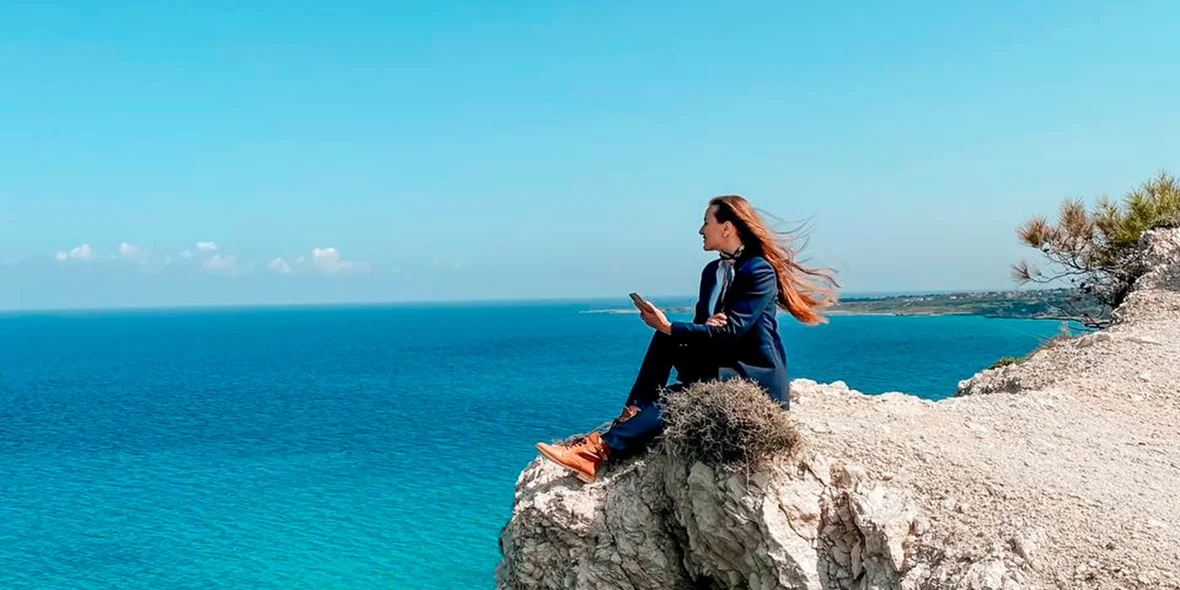
«In nine years, apartments in Iskele increased in price three times, however, most houses still have no heating». A woman from Belarus moved to Northern Cyprus, and now can tell about life and investments
These days, no one is surprised by moving to live permanently in another country, even if it is far away from their hometown. But some people left their countries many years ago, when it wasn’t such a trend, and Elizaveta is one of them. She enrolled in the magister’s program at one of the universities of Northern Cyprus and left Belarus back in 2013. Today, after 10 years, she is the head of the sales department at Goldmark estates company. Life on the island, investments in real estate of Northern Cyprus, and all pros and cons of moving abroad — everything in a major interview for Realting.
«Here, my life became more peaceful and carefree». About the pros and cons of life in Northern Cyprus
 — How long have you lived in Northern Cyprus and why have you moved? What was the most difficult at first?
— How long have you lived in Northern Cyprus and why have you moved? What was the most difficult at first?
— I moved to North Cyprus almost 10 years ago, in September 2013. I came to the island with one suitcase at a time to study for a master’s degree at a local university. It all started when I worked for a travel agency in Minsk at one of the international exhibitions, and there I helped one of the English-speaking exhibitors. He turned out to be the Vice-Rector of a university in Northern Cyprus and told me that it was possible to win a study grant if I successfully passed the exam/test here in Minsk. All that was required then was knowledge of English. I had just graduated from the Belarusian State Economic University, and I decided: why don’t I try to get such a grant? In the end, I passed the exam, and even made it into the top five students for whom studying in Northern Cyprus was free. A few months later, I was on a plane with a suitcase full of things and about $1500 in my pocket.
At that time I knew nothing about Cyprus, I didn’t even understand the difference between the North and the South. I was just going for the dream of living and studying by the sea in a warm climate. Looking ahead, it’s been 10 years since I’ve thought about leaving or choosing a different place to live.
North Cyprus has many unobvious bonuses that you don’t realize until you get here. The main ones, of course, are the climate and the environment, the ability to live all year round within walking distance of the Mediterranean, the safety, the hospitable and welcoming local people, and the relaxed, measured way of life (I’m not a big city fan). I currently live in Cyprus with my family and children and am convinced that it is the best place to live with little children. Plus I found my favorite job in Cyprus and since 2014 I have been working in real estate and currently manage the sales department of Goldmark estates.
However, it cannot be said that once I arrived on the island, my life immediately became calm and unclouded, there was an adjustment period. In the initial stage, bureaucracy became very difficult for me, such as applying for a residence permit, registering a rental agreement, collecting certificates, changing driving licenses, etc. But the hardest part wasn’t even the paperwork, it was the lack of communication. I came to the island alone, and at first, it was hard to adapt to the absence of acquaintances, friends or relatives. Plus, you have to keep in mind that it was 2013 and there was hardly any information about Northern Cyprus on the Internet, apart from advertising articles, no Instagram or YouTube blogs about life in Cyprus — I was basically moving blindly.
In 2023 it is easy enough to adapt and deal with all the paperwork on the island as there is enough publically available information, many processes, including residence permits, has started to be processed online and many government websites have English language versions. Also, due to a large number of Russian-speaking people who have moved for permanent residence, medical centers, banks, pharmacies, and schools now have Russian-speaking staff and advisers, which allows our people to more quickly enter into a familiar rhythm of life in the new country. And, what is no less important, in Cyprus the local people are very responsive — they are always open to communication and ready to help even unfamiliar people and treat well those who come to their country.

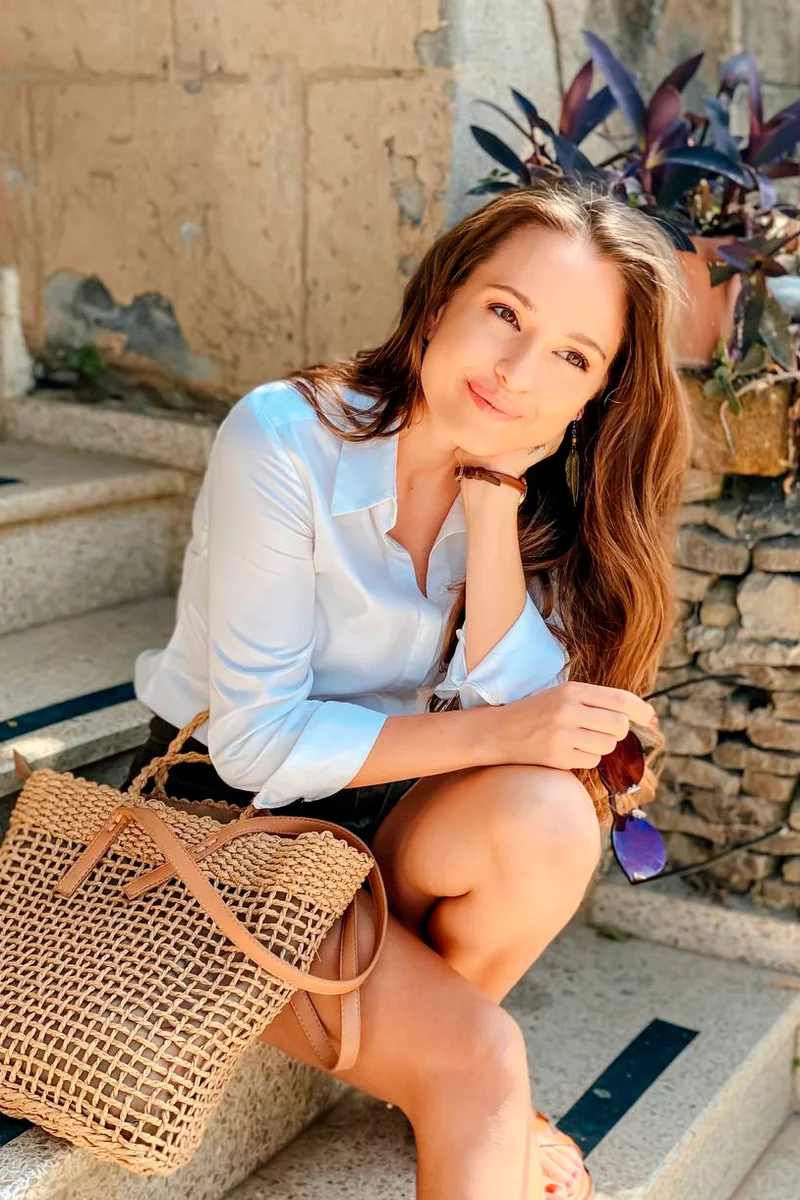
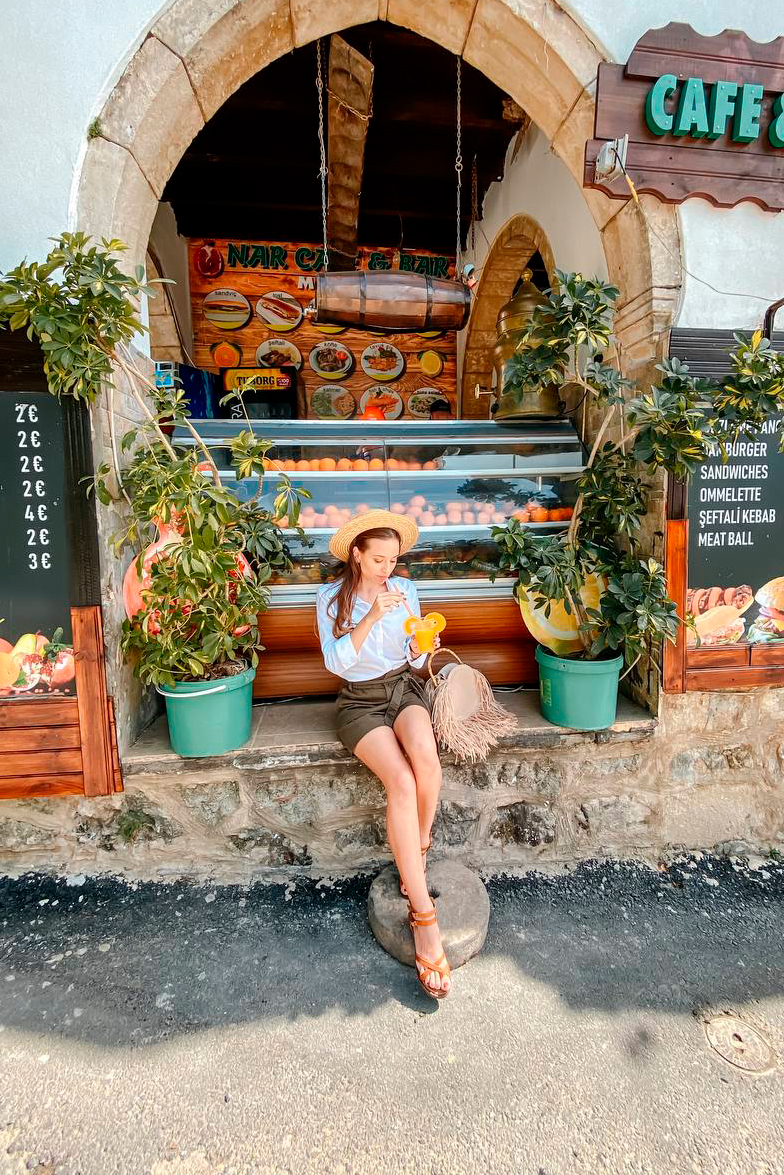
— Has your opinion of Northern Cyprus changed after a few years of living on the island? What were the pleasant and unpleasant discoveries?
— Many discoveries have happened during this time, and most of them, of course, were pleasant ones. The first things that come to mind when I think of the island are the delicious food (there was even the idea of hosting gastro tours for foreigners), the cleanest sea, safety, responsive people, excellent climate, and affordability of life in financial terms.
Cyprus falls in love at first sight. People who choose to stay in Cyprus, apart from loving the island, are attracted by the simple and quick procedure of applying for a residence permit, the opportunity to place children in public schools, which teach according to the Cambridge system, and the affordable prices. And, as a bonus, the sea, sunshine, and clean environment.
If we talk about unpleasant «discoveries» in Northern Cyprus, for me it is, first of all, the lack of heating. I distinctly remember my first winter in Cyprus, when I had to buy a lot of warm home clothes. The locals joke: «if you want to get warm in Cyprus in winter, go outside», and it really is that (especially if it’s flats in old houses).
It was also unfamiliar to me that there is no centralized taxi service (like Uber, for example) and very little public transport. For example, there are minibuses in the Kyrenia area and a bus runs between major cities a couple of times a day, but it’s hard to guess its timetable. Of course, if you have a car, this disadvantage is mitigated, but all the same.
And the slowness of the Cypriots is unaccustomed — it’s the hardest thing to get used to. They take their time doing their job, and if something breaks at home and you call a handyman, at best he’ll come in a couple of days, or maybe forget about it all. But fortunately, many newcomers set up their own companies that provide repair services, etc., and provide services at the pace and quality we are accustomed to.
For those coming from big cities, the lack of big shopping centers (there are a lot of shops, but they are all scattered around the city) and the lack of deliveries (not counting deliveries from restaurants) is also a challenge. But you get used to it too, and if you want a global shopping experience, Istanbul is close by — just 1 hour by plane and you have all the brands and shops open in front of you.
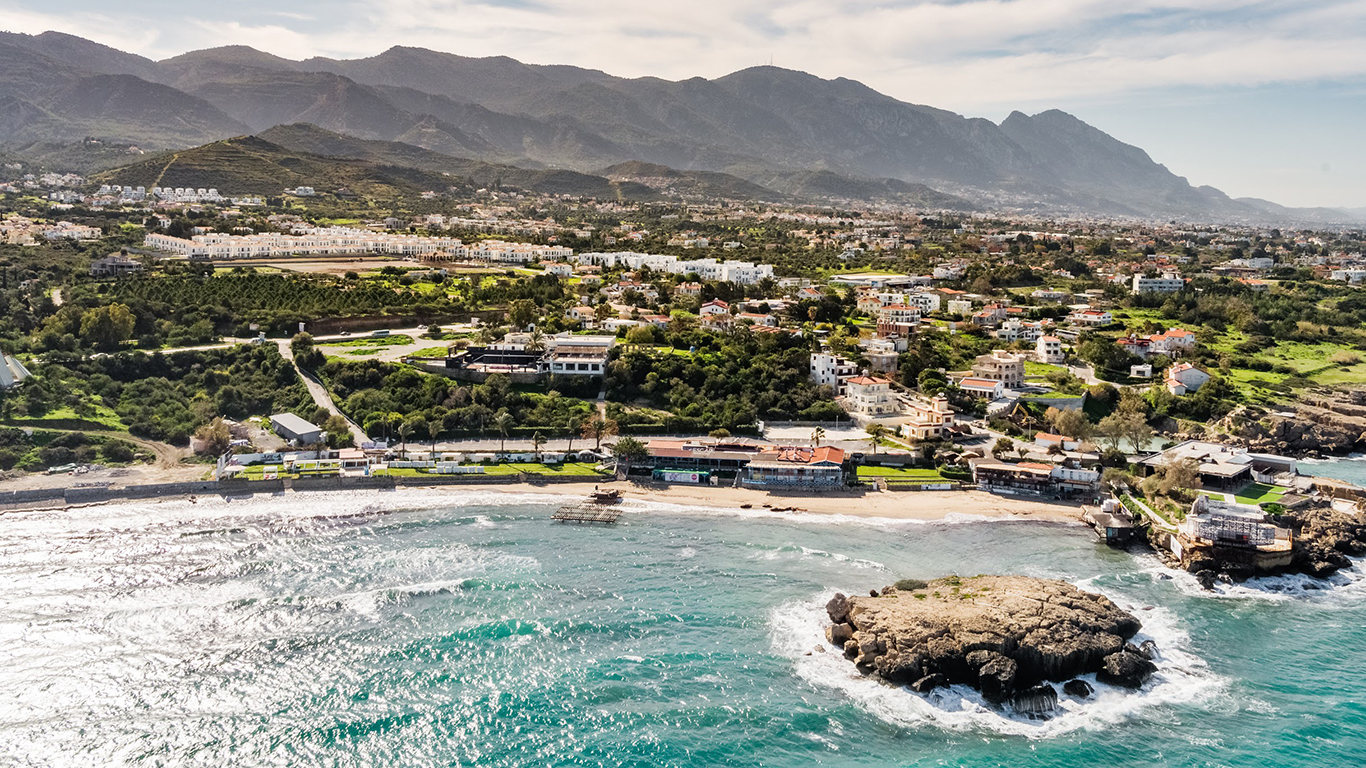
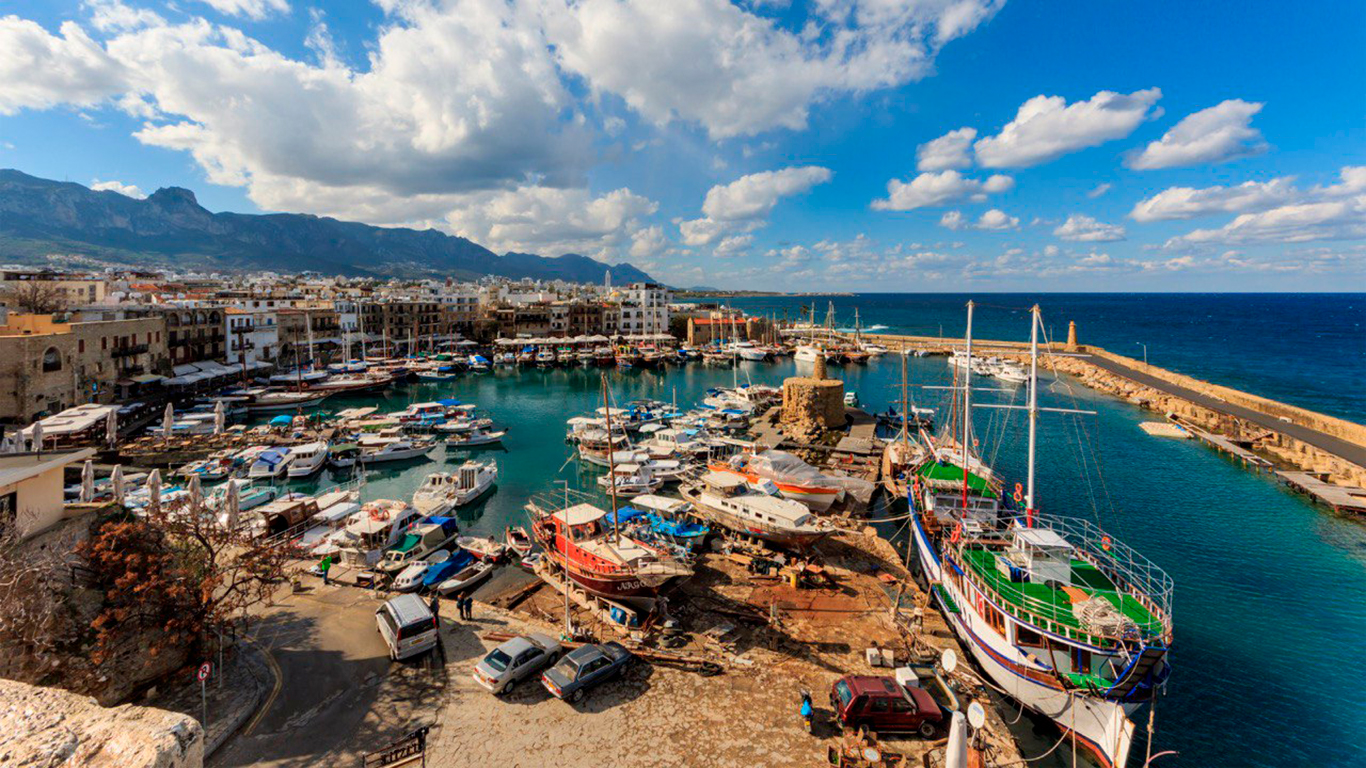
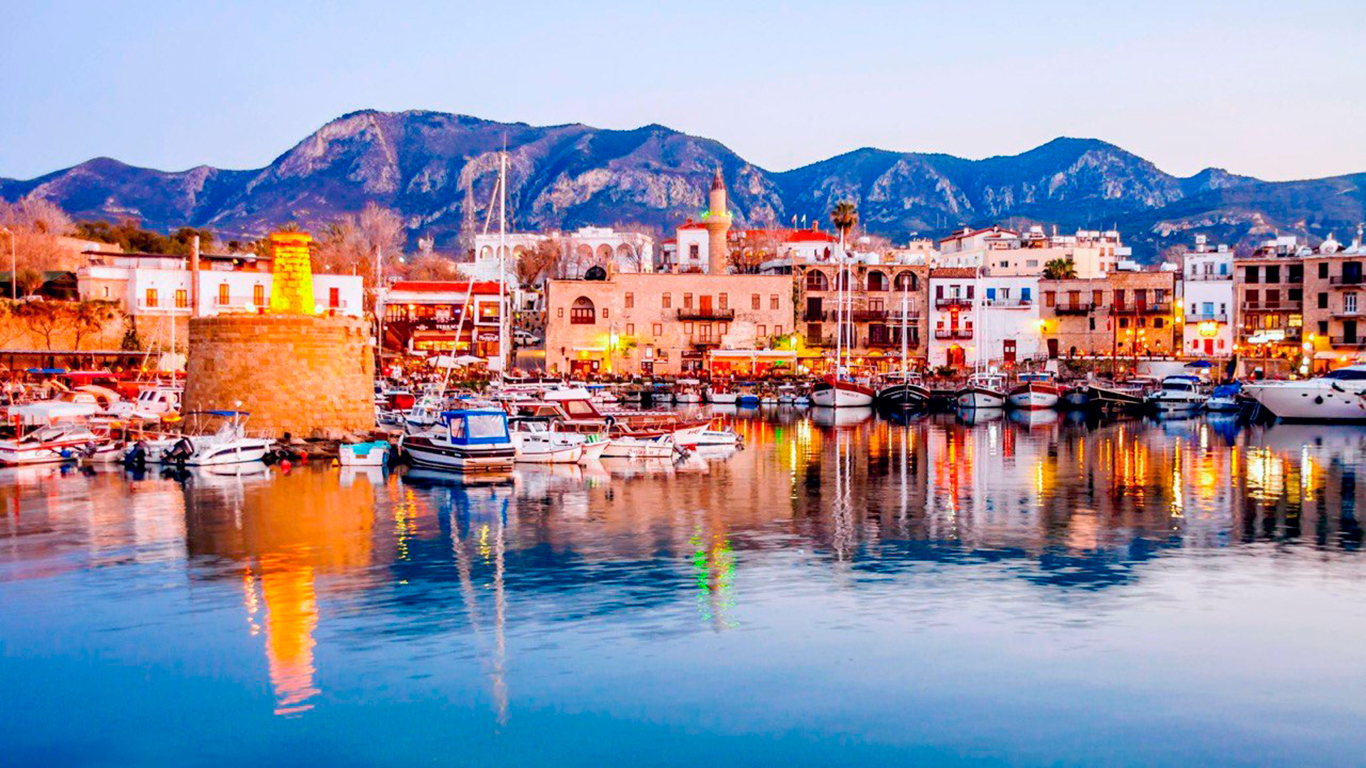
«There are some nuances any investor would have to be aware of»
— Northern Cyprus is becoming increasingly popular with investors — why so, from your point of view?
— Indeed, Northern Cyprus has over the past couple of years become an attractive country for investors from a multitude of countries. Our buyers include citizens of not only Russia, Belarus, Ukraine, and Kazakhstan, but also the UK, USA, Germany, Israel, Norway, and other countries. The property market in Northern Cyprus is growing rapidly and investors are attracted by high prices, lucrative payment plans, and the ability to rent property almost all year round, as Cyprus has a relatively long season.
The majority of investors turn their attention to new projects at the stage of excavation, which is when the maximum financial gain can be obtained. But it is not only at this stage that one can get a good deal on Northern Cyprus property. Here, real estate is times cheaper than in other resorts of the Mediterranean countries. For a studio flat in a new building, prices start from 80,000 euros. Plus you can
benefit from the dynamics of price increases during the construction of the project.
As a result, investors have two models of behavior in the market. The first is to buy the property and rent it out when it is completed. The second is to invest at the stage of the excavation, wait until construction is completed, and resell, earning 20-25% or more, even without waiting for the completion of the project.
— It all sounds suspiciously simple and profitable. What’s the catch?
— The reality is that it is not all that simple. When buying a property in Northern Cyprus it is important to be aware of a few nuances, and every investor should know about them in advance:
- Firstly, the area of the property is calculated on the outside corner of the building, which means that the total area of the property includes the walls. It is the total area that is indicated in the price lists, not the actual living area.
- Secondly, taxes and extra charges are not included in the price specified in the price list. For the purchase of the property and its subsequent registration, the buyer must pay the following additional fees: stamp duty — 0.5% of the property value (to be paid upon the registration of the contract at the land registry office), 5% VAT and 3% tax on the title deed transfer in the buyer’s name. Also worth mentioning among the one-off payments is the transformer fee — its value varies from £500 to £2,500 depending on the complex. And of course, there is the annual property tax, which is calculated based on the area of the property. For every square meter the property owner must pay 3 Turkish Lira — for example, for a 100 square meter flat, the owner must pay 300 Lira (about $16) once a year.
- Thirdly, as well as when buying property in any other country, the investor should pay attention to the location of the property and the infrastructure of the area, as it directly affects the level of potential income.
- Fourthly, of course, do not forget to check the property’s documents, but lawyers and a licensed real estate agent can help with this.
— How to choose a property for investment? What cities to consider?
— The first question I always ask my clients is what is the purpose of buying a property? You have to understand that not all properties are investment attractive. You can find an apartment high up in the mountains for less than the market price and hope that the flat will be actively rented out for short periods, even though it is a few kilometers from the sea and has a view of the house next door. But these are illusions and dreams. The choice of property for investment and the choice of property for your own taste and for yourself are two radically different positions. When choosing a property for investment, you should, first of all, analyze the average price growth of real estate in the area. Next, you need to evaluate the property in terms of tourist appeal: what is in the complex, how far it is from the sea, what is the nearby beach, and what infrastructure. The next step is to analyze the average rental rates. All this data will help to calculate an approximate return on investment.
My advice this year is to look at the fast-growing coastal areas of Iskele (which made the Forbes list as an investment hotspot) and Esentepe. Both districts are in a phase of active growth and development, have a steady annual increase in prices, and are popular with tourists. To give you an example in numbers, in 2014 a studio flat in the Iskel area cost £25,000, but now similar flats start from £75,000. The increase in 9 years has been 200%! And prices continue to rise steadily in parallel with the development of the region.
It is also possible to buy property in these areas with a favorable payment plan. Most projects offer a down payment of 30% and an installment plan at 0% per annum from 24 to 120 months! The bonus of a long installment plan is that once the property is finished, you can rent it out on a short-term basis and partly or fully (depending on the specific property) cover the monthly installment payments.
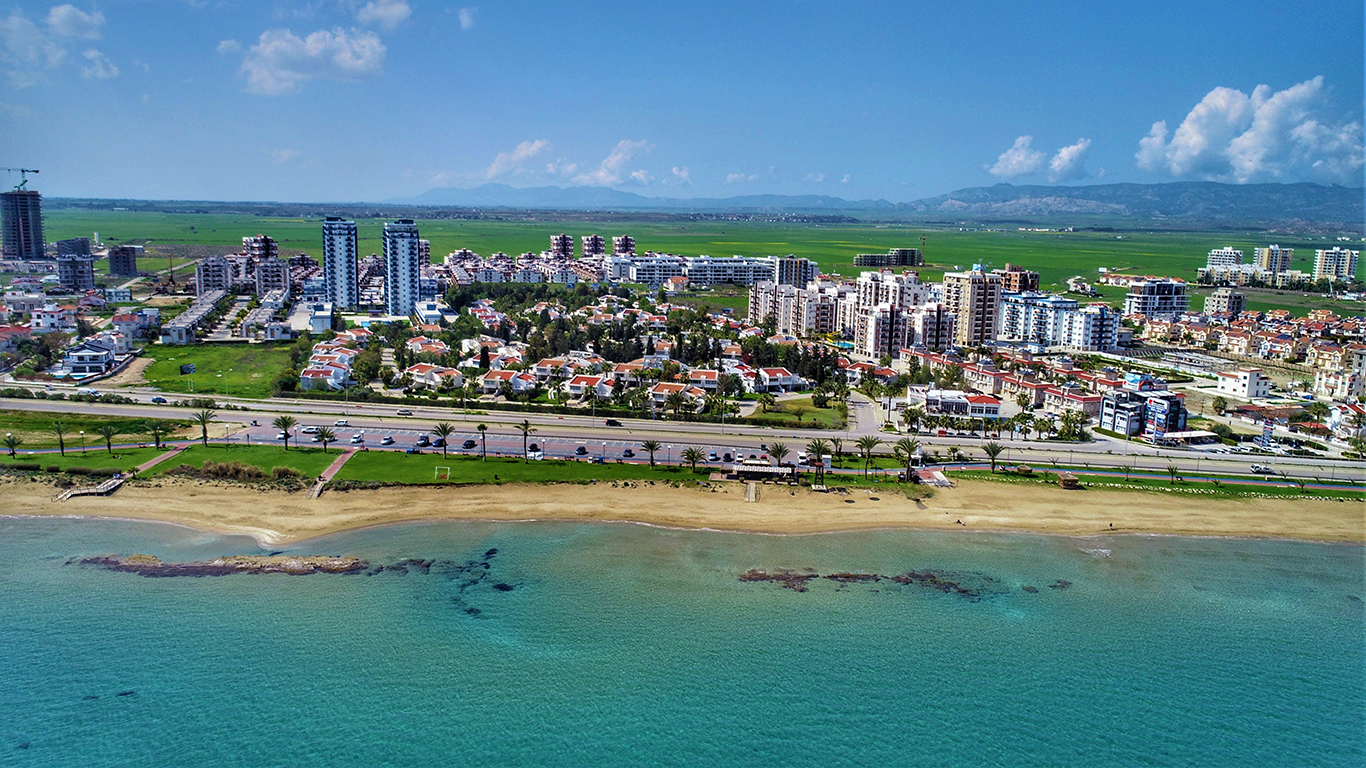
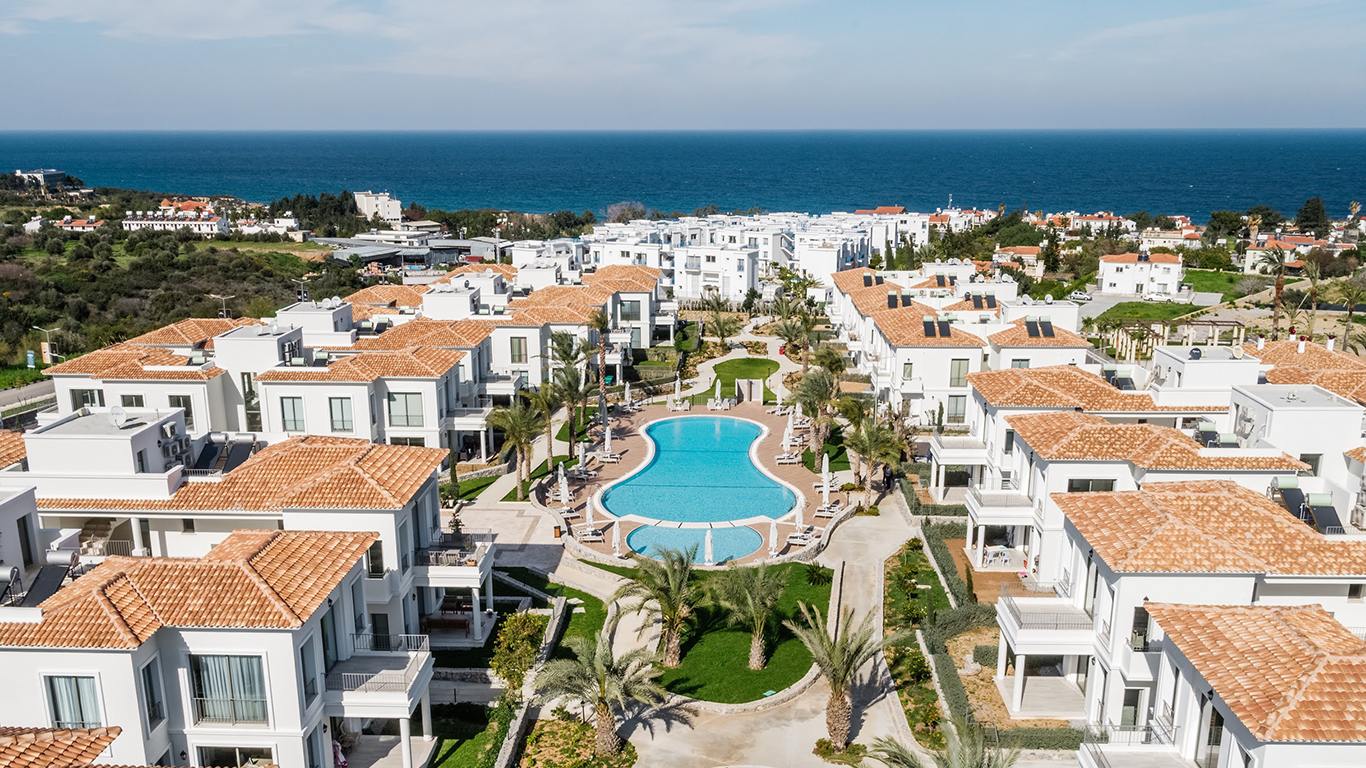
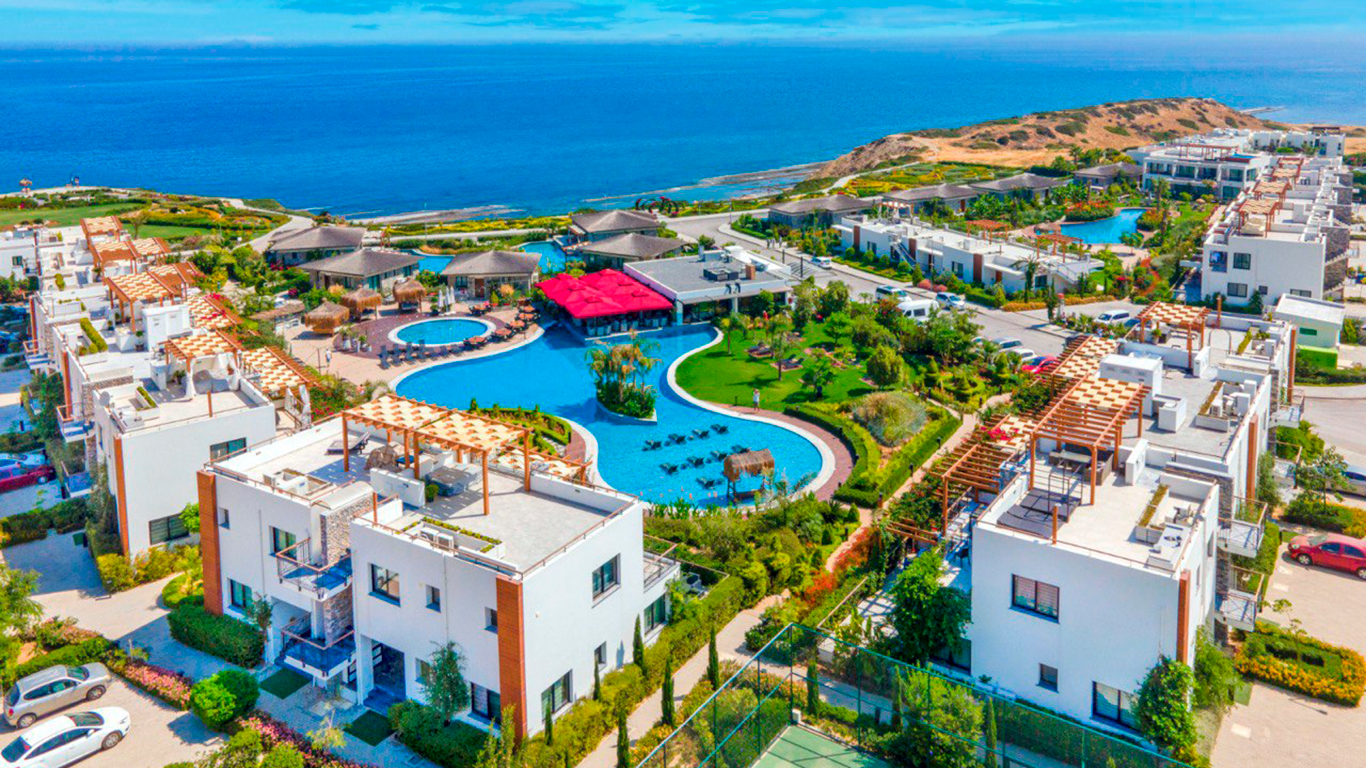
— Can I invest in Northern Cyprus property on my own?
— Of course, it is possible to invest on your own, but you will have to spend a lot of time and effort studying the property market, checking out developers and projects. I would therefore recommend consulting professionals who will lead the way, tell you about all the intricacies and pitfalls, and help you not only with the search and selection of property, but also with the registration of the property into ownership and subsequent rental or resale. Moreover, it should be taken into account that licensed real estate agents work in accordance with the developers’ prices and do not charge extra fees from buyers, and know about all new projects and classified sales, and for investors, it is the most important. It is at closed sales that you can get the best deal on a property. Also, each transaction conducted through a licensed real estate agency is insured for up to €200,000.
If you do decide to work on your own, it is a good idea to start by coming to Northern Cyprus for a long period of time and start studying the property market and getting to know developers and projects. Once a project has been selected, it is necessary to check the property and the developer’s documents. Please note that all documentation is in Turkish and you will need the help of a qualified lawyer. Especially as property developers do not help with the property registration process!
The average solicitor’s service fee is £1,500. A solicitor will help you with the developer’s paperwork, the sales agreement, and the subsequent procedures for taking possession of the property. It should be stressed that if you work independently without an agent on the island, all questions regarding property development, renting, payment of bills, and taxes will fall entirely on the property owner. This is why most investors prefer to work with a market professional to have their representative on the island to deal with all issues regarding the property, including renting it out.




















